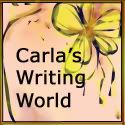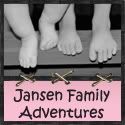 |
| Photo by Ian Britton at FreeFoto.com |
A few days later I pulled the book out and "read" it to her. I translated each page into toddler-speak as we went along, leaving 1-2 new words on each page. I figured a little vocabulary-building couldn't hurt. When we finished, she asked me to read it again. (That's toddler-speak for "I like it!")
As I've written for children and teenagers I've tried to write on their level. I don't want them to need someone to translate or lose interest because they don't understand what I've written. Trying to write on-level, however, brings a couple problems:
- Not all 3-year-olds (or 8-year-olds or 14-year-olds) are on the same level!
- I still think a little vocabulary-building is good.
In 1983 Betty Hart and Todd Risley began a research project that wouldn't be complete and published until 1995. They followed 42 families from upper, middle, lower, and welfare socio-economic levels for several years, recording and transcribing how much the parents talked to their babies. What they discovered was astounding. The average child in an upper socio-economic family heard 2153 words per hour while the average child in a welfare home heard 616 words per hour. By the time a child turns four, that translates to almost 45 million words for the wealthier child and 13 million words for the poorer child.* Even more interesting, the preschooler's vocabulary can be an indicator for how well they will perform in later years. All this by the time they're four!
I've always thought vocabulary-building is good, but this makes me much less timid about introducing new words to kids! Even if they don't know what each word means, it seems that the simple exposure is doing them good! Also, books tend to have more opportunity to use language that isn't common in everyday conversations and speech. It's okay to use complete sentences and appropriate grammar in books where in "real life" it might sound a little formal.
At three-and-a-half years old, my daughter still likes the picture book I mentioned earlier. I haven't translated it for many months. She's probably heard it over 100 times. She still doesn't know what all the words mean, and I am perfectly okay with that.
* Read an NPR article about the research here: http://www.npr.org/2011/01/10/132740565/closing-the-achievement-gap-with-baby-talk. The actual article Hart and Risley published is available here: http://www.elfrank.net/UFT/Articles/early%20catastrophe.pdf.





9 comments:
What a great idea!!! This is why I advocate for families reading together. It's so very important for young minds that do not completely know the world (or the language) to have someone (especially a mother) to "translate" a book they want to read either literally when they don't know what the words mean or just because they do not understand the concept.
It is really an admirable thing you are doing! Keep up the good work. Do you ever post any of your pages on your blog?
Also, I would love it if you would join my Weekend Wonders! I think it's a great way to get to know even the newest of followers. All I need is your email address so that i may send you the questionnaire. Either leave it as a comment somewhere on my blog or email it to me at RedMatinee7007@aol.com.
TTYL!
AubrieAnne @ http://whosyoureditor.blogspot.com/
Oh! I am also following you as well! :)
Interesting. I have my 16-year-old daughter read my writing for me (since she's a member of my target audience). When she doesn't know a word I've used, I replace it. It isn't often, but it has happened. I'm thinking maybe I should leave some big words in. After all, even 16-year-olds don't know all the words in English language.
Aubrie, I agree--it's great to read as a family...good books can be a springboard for great conversations. By pages, do you mean like writing samples? I'm a little unsure how to answer you question!
Susan, I love that your daughter reads for you! How fun! I think we should be careful about leaving enough clues so kids can guess at meanings without having to get a dictionary, but how cool would it be if a kid WANTED to look up a word he came across in a book?! Yeah, that would be awesome! Of course, I suspect the daughter of a writer has a larger-than average vocabulary!
~Carla
That's so interesting. I heard something the other day in my education class about new mothers who are between the ages of 15-20ish don't talk to their babies as much because they didn't know they needed to. I wonder how that's going to change the entire make up of the study you're talking about.
Hi Carla! I'm just popping over from the comment you left on my blog and wanted to say hi and thanks! Thanks for celebrating with me on my two-book deal! I love your dream - to write books for kids. Keep chasing it, girl!
Bethany, it's definitely a subject that could stand a lot more research. There's so many factors that could affect it...and that it could affect!
Katie, congratulations, girl! Thanks for visiting!
~Carla
I've heard about this study before and it is fascinating. I have messed up in many aspects of parenting (sleeping, eating, etc) but the one thing I can honestly say I did right is language skills. I have never met kids with better vocabularies than mine. And that is because I did expose my kids to all kinds of words. I never limited my vocabulary. I said things to my two year old like "Your behavior is rapidly deteriorating." Ha. And then I went on to say it again in a way that they could understand. And I believe that exposure really made a difference.
"Your behavior is rapidly deteriorating." LOL! I can believe your kids have amazing vocabularies! I would love to hear that in a grocery store as toddler begins to stress out. It makes me smile just thinking about it.
~Carla
Post a Comment
Thanks for commenting! You make my day brighter!